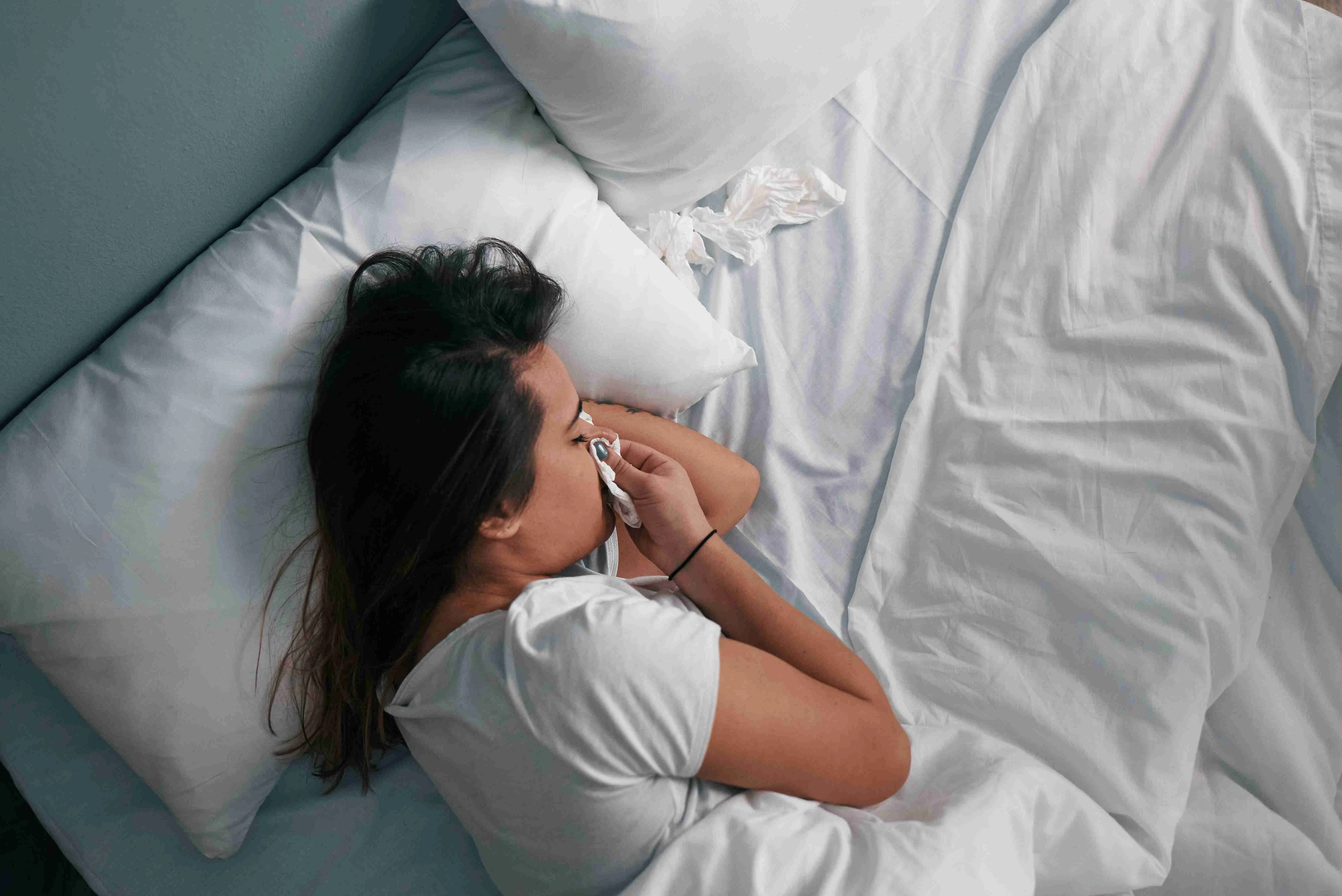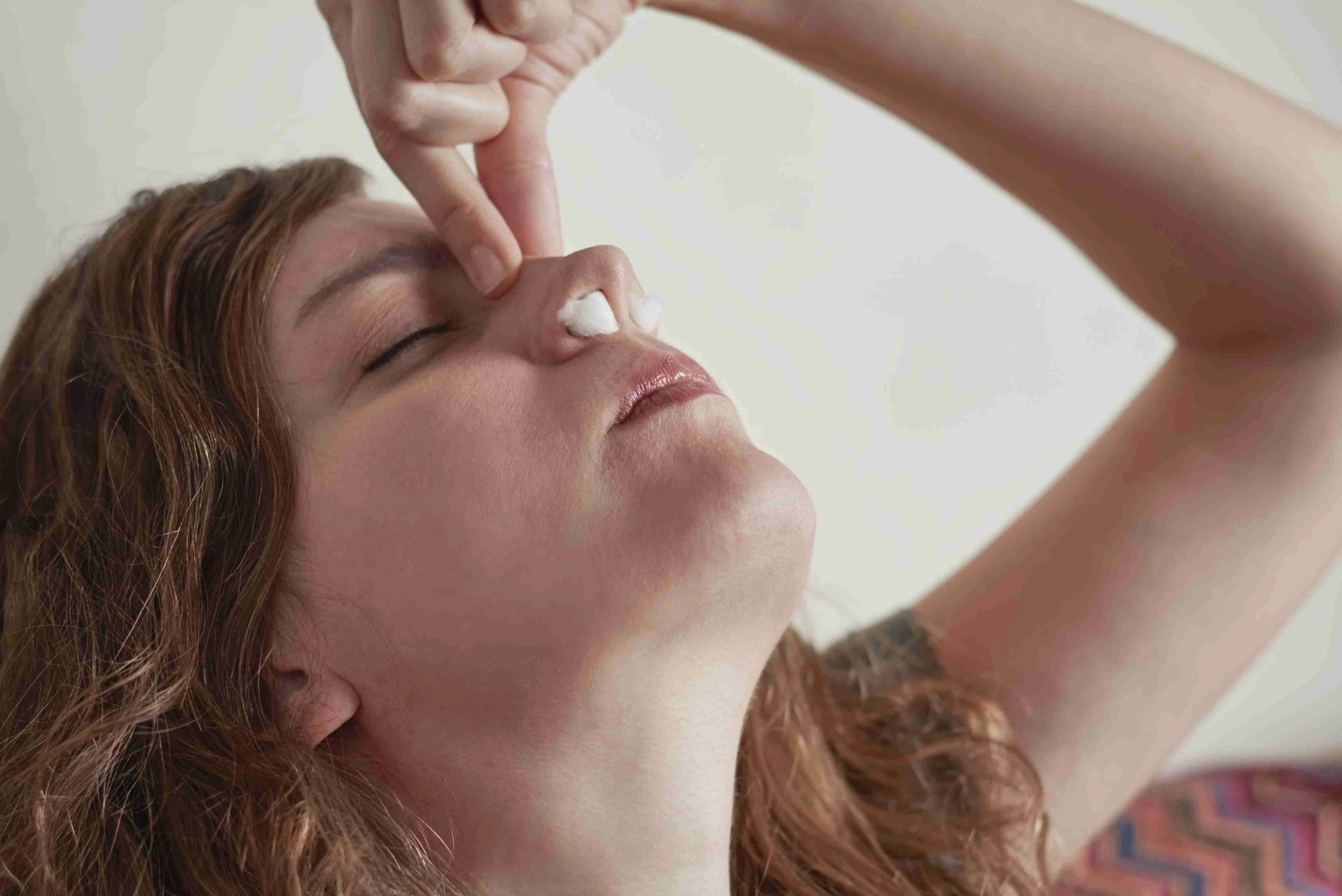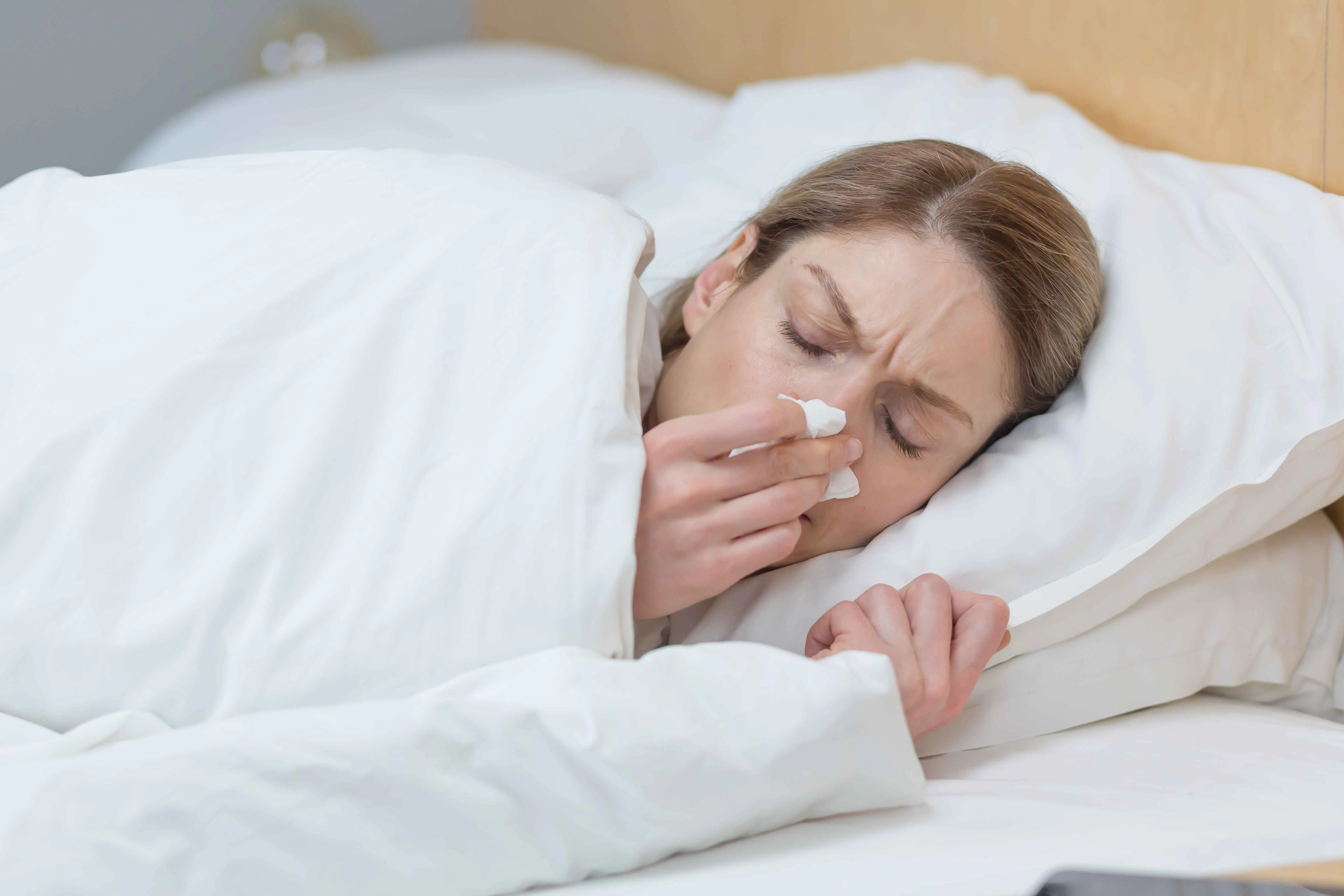Waking up to a nosebleed can be alarming, especially if it happens frequently. While nosebleeds during sleep are usually harmless, they can be messy, uncomfortable, and sometimes a sign of an underlying issue.
Various factors, such as dry air, allergies, nasal congestion, or even certain medications, can contribute to nighttime nosebleeds. Since nasal health is closely tied to overall physical health, addressing these factors can help prevent recurring episodes.
In this article, we will explore the causes and how to prevent and manage them so you sleep more peacefully without unexpected interruptions
The Anatomy of the Nose and Its Sensitivity
The nose is a complex organ responsible for breathing, filtering air, and detecting scents. It consists of external and internal structures, including the nasal cavity, turbinates, and olfactory receptors. These receptors detect thousands of scents, contributing to taste and memory.
The nasal lining is highly sensitive, responding to allergens, pollutants, and temperature changes. Nerve endings in the nose trigger sneezing to expel irritants.
Additionally, the septum divides the nostrils, aiding airflow. The nose’s sensitivity plays a crucial role in detecting dangers, such as smoke or spoiled food, highlighting its importance in both protection and daily life.
Why Do Nosebleeds Happen While Sleeping?

Nosebleeds during sleep can occur for several reasons, and understanding the underlying causes can help prevent future incidents. Here are the most common causes:
Dry Air and Low Humidity
When the air is dry, especially in winter or in air-conditioned rooms, the nasal passages can become dry and cracked, making them more prone to bleeding.
Allergies, Sinus Infections, and Irritants
Allergic reactions, sinus infections, and irritants like smoke, dust, or strong odors can inflame the nasal lining, increasing the risk of nosebleeds.
Nasal Congestion
When your nose is congested due to a cold or flu, frequent blowing or irritation of the nasal passages can lead to bleeding.
Overuse of Nasal Sprays
Certain nasal sprays, especially decongestants, can dry out and thin the nasal lining over time, making it more susceptible to bleeding.
Nose Picking
Picking at dry or irritated nasal tissues can cause small blood vessels in the nose to rupture, leading to nosebleeds.
Underlying Health Condition
Conditions such as high blood pressure, clotting disorders, or vitamin deficiencies can increase the likelihood of nosebleeds.
Blood Thinners and Medications
Certain medications, such as blood thinners (aspirin, warfarin) or nonsteroidal anti-inflammatory drugs (NSAIDs), can make blood vessels more fragile and prone to bleeding.
Sleep Environment and Positioning
Sleeping in a dry room, using a fan, or sleeping in a position that increases nasal pressure can contribute to nosebleeds.
Physical Trauma or Injury
Accidental bumps to the nose while sleeping, or even friction from a pillow, can sometimes cause minor injuries leading to bleeding.
How to Prevent Nosebleeds While Sleeping

While some causes of nighttime nosebleeds may be unavoidable, there are several preventive measures you can take to reduce your risk of experiencing one during sleep:
Use a Humidifier
Running a humidifier in your bedroom adds moisture to the air, preventing your nasal passages from drying out and reducing the likelihood of bleeding.
Hydrate
Drinking plenty of water throughout the day helps keep your nasal tissues hydrated, making them less prone to cracking and irritation.
Avoid Overuse of Nasal Sprays
Limit the use of decongestant nasal sprays, as prolonged use can dry out the nasal lining. Opt for saline sprays instead to keep your nose moist without irritation.
Allergy Management
If allergies contribute to nasal irritation, take antihistamines or other allergy medications as recommended by your doctor. Regularly clean bedding and use air purifiers to minimize exposure to allergens.
Apply a Nasal Moisturizer
Using petroleum jelly, saline gel, or nasal ointments before bed can help keep your nasal passages moisturized, reducing dryness and irritation.
Elevate Your Head While Sleeping
Sleeping with your head slightly elevated can improve blood circulation and reduce pressure in the nasal passages, lowering the risk of nosebleeds.
What to Do If You Get a Nosebleed While Sleeping

If you wake up with a nosebleed, it’s important to stay calm and follow these steps to stop the bleeding:
Immediate Steps to Stop the Bleeding
- Sit Up and Lean Forward: This posture prevents blood from flowing down your throat, which can cause nausea or choking.
- Pinch Your Nostrils: Use your thumb and index finger to pinch the soft part of your nose just below the bridge and hold for 10-15 minutes.
- Breathe Through Your Mouth: Avoid sniffing or blowing your nose, as such actions can worsen the bleeding.
- Apply a Cold Compress: Place an ice pack or a cold cloth on the bridge of your nose to constrict blood vessels and slow the bleeding.
- Use a Nasal Decongestant Spray: If the bleeding persists, a spray like oxymetazoline (Afrin) may help constrict blood vessels (but don’t use it frequently).
- Rest and Avoid Movement: Try to remain still to prevent disturbing the clot that forms to stop the bleeding.
What NOT to Do During a Nosebleed
- Do Not Tilt Your Head Back: This can cause blood to drain into your throat and stomach, leading to nausea or vomiting.
- Do Not Lie Down Flat: Sitting upright helps reduce pressure in the nose and allows blood to drain properly.
- Do Not Stuff Tissues or Cotton in Your Nose: This can cause irritation and may worsen the bleeding when removed.
- Do Not Blow Your Nose: Blowing your nose too soon after a nosebleed can dislodge the clot and cause it to start bleeding again.
- Do Not Engage in Strenuous Activity: Avoid exercise or heavy lifting for a few hours after the bleeding stops to prevent rebleeding.
Cleaning Up After a Nighttime Nosebleed
- Gently Clean Your Face and Nose: Use a damp cloth to wipe away dried blood, avoiding harsh scrubbing.
- Replace Any Blood-Stained Bedding: Wash pillowcases and sheets promptly with cold water to prevent staining.
- Use a Saline Spray or Moisturizer: Applying a saline spray or petroleum jelly can help keep nasal passages moist and promote healing.
- Rest and Monitor for Recurrence: If bleeding starts again, repeat the stopping steps and consider using a humidifier to prevent future episodes.
- Seek Medical Attention If Needed: If the bleeding lasts longer than 20 minutes or is very heavy, consult a doctor.
FAQs
What causes nosebleeds while sleeping?
Nosebleeds during sleep are typically caused by dry air, nasal congestion, or allergies. Dry indoor air, especially in winter or in air-conditioned rooms, can dry out the mucous membranes in the nose, causing them to crack and bleed.
How can I prevent nosebleeds while sleeping?
To prevent nosebleeds at night, consider using a humidifier to maintain moisture in the air, especially during winter months when indoor air is dry. Staying hydrated and using saline nasal sprays before bed can also help keep your nasal passages moist. If you suffer from allergies, manage them with medication and keep your sleeping environment free from allergens.
Are frequent nosebleeds a sign of a serious health issue?
In most cases, frequent nosebleeds are not a cause for concern and are typically due to environmental factors like dry air, allergies, or nasal congestion. However, if nosebleeds become recurrent or are difficult to control, they could indicate an underlying health issue.
Can allergies cause nosebleeds during sleep?
Yes, allergies can trigger nosebleeds, especially during sleep. Allergens such as dust, pet dander, mold, and pollen can cause inflammation in the nasal passages, making the blood vessels more fragile and prone to bleeding.
When should I see a doctor for nosebleeds at night?
If you experience frequent or severe nosebleeds while sleeping, it’s a good idea to consult a doctor. If the bleeding is difficult to stop or recurs regularly, it could be a sign of an underlying health condition, such as a clotting disorder or a nasal structural issue.
Conclusion
Nighttime nosebleeds can be a nuisance, but in most cases, they are not a cause for concern. By keeping your nasal passages hydrated, avoiding irritants, and taking simple preventive measures, you can significantly reduce the chances of experiencing a nosebleed while sleeping.
Dom Abraham
As the lead content writer at Sleepiverse. Dom pours his heart into writing mattress reviews, bedding product reviews, and medically-reviewed health articles. Dom is from Portugal and likes to spend his free time writing on the beach as it gives him a sense of comfort. Aside from writing mattress reviews in front of the soothing beach view, Dom likes to experiment with new amazing food ideas.


